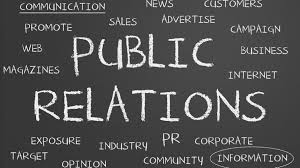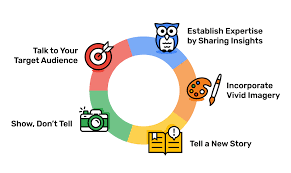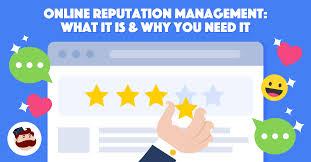Unlocking Success: The Significance of Great PR in Building Strong Relationships and Positive Reputation
The Power of Great PR: Building Strong Relationships and Positive Reputation
Public Relations (PR) plays a crucial role in shaping the image and reputation of a business or individual. Great PR goes beyond just managing media relations; it involves building strong relationships with stakeholders, creating compelling narratives, and maintaining a positive public perception.
One of the key benefits of great PR is its ability to enhance credibility and trust. By effectively communicating with the target audience through various channels, such as media placements, social media, and events, PR professionals can establish a positive reputation for their clients.
Furthermore, great PR helps businesses differentiate themselves from competitors. Through strategic messaging and storytelling, PR professionals can highlight the unique aspects of a brand or individual, making them stand out in a crowded marketplace.
Another important aspect of great PR is crisis management. In today’s fast-paced digital world, reputations can be tarnished in an instant. A skilled PR team can help mitigate damage during crises by responding quickly, transparently, and effectively to protect the client’s reputation.
Moreover, great PR contributes to brand awareness and visibility. By securing media coverage, organising events, and engaging with influencers, PR professionals can increase the reach and impact of their clients’ messages.
In conclusion, great PR is essential for building strong relationships with stakeholders, maintaining a positive reputation, differentiating from competitors, managing crises effectively, and increasing brand visibility. Investing in quality PR services can have a significant impact on the success and growth of any business or individual.
Top 7 Frequently Asked Questions About the Importance of Great PR in Business
- What is the importance of PR in business?
- How does PR help in building a positive reputation?
- What are the key benefits of great PR?
- How can PR differentiate a brand from its competitors?
- What role does crisis management play in PR?
- How does PR contribute to brand awareness and visibility?
- Why is investing in quality PR services crucial for businesses?
What is the importance of PR in business?
The importance of Public Relations (PR) in business cannot be overstated. PR plays a crucial role in shaping and maintaining a positive image and reputation for a business. It helps businesses build strong relationships with their stakeholders, including customers, investors, employees, and the media. Effective PR strategies can enhance credibility, trust, and brand loyalty, ultimately leading to increased sales and profitability. PR also helps businesses differentiate themselves from competitors, manage crises effectively, and increase brand visibility through strategic messaging and storytelling. In today’s competitive market landscape, investing in PR is essential for fostering long-term success and growth for any business.
How does PR help in building a positive reputation?
Public Relations (PR) plays a vital role in building a positive reputation by effectively managing communication between an organisation or individual and their target audience. PR professionals use strategic messaging, media relations, and storytelling to create a favourable image that resonates with stakeholders. By consistently delivering key messages and engaging with the public through various channels, such as traditional media, social media, and events, PR helps to shape perceptions and build trust. Through proactive reputation management and crisis communication strategies, PR professionals can address issues promptly and transparently, reinforcing credibility and demonstrating integrity. Ultimately, PR is instrumental in cultivating a strong reputation based on authenticity, transparency, and meaningful engagement with the audience.
What are the key benefits of great PR?
One of the most frequently asked questions about great PR is, “What are the key benefits of great PR?” The answer lies in the multifaceted advantages that effective public relations can bring to businesses and individuals. From enhancing credibility and trust to differentiating from competitors, great PR plays a pivotal role in shaping positive reputations, building strong relationships with stakeholders, managing crises effectively, and increasing brand visibility. By leveraging strategic messaging, storytelling, and engagement with various channels, PR professionals can drive impactful results that contribute to long-term success and growth.
How can PR differentiate a brand from its competitors?
Public Relations (PR) can differentiate a brand from its competitors by crafting and communicating a unique narrative that highlights the brand’s distinct qualities, values, and offerings. Through strategic messaging, storytelling, and targeted communication efforts, PR professionals can position the brand in a way that resonates with its target audience and sets it apart in a competitive market. By securing media coverage, leveraging influencer partnerships, and engaging in thought leadership initiatives, PR can enhance the visibility and credibility of the brand, ultimately helping it to stand out and leave a lasting impression on consumers amidst a sea of competitors.
What role does crisis management play in PR?
Crisis management plays a critical role in Public Relations (PR) as it involves the strategic handling of unexpected events that could potentially damage an individual or organisation’s reputation. In PR, effective crisis management is essential for mitigating negative impacts, maintaining trust with stakeholders, and preserving brand credibility during challenging situations. PR professionals must act swiftly, transparently, and decisively to address crises, communicate key messages to the public, and protect the reputation of their clients. By proactively planning and implementing crisis management strategies, PR practitioners can navigate turbulent times successfully and emerge stronger from adversity.
How does PR contribute to brand awareness and visibility?
Public Relations (PR) plays a vital role in enhancing brand awareness and visibility through strategic communication tactics. By leveraging media relations, social media platforms, influencer partnerships, and engaging storytelling, PR professionals can effectively amplify a brand’s message to reach a wider audience. Securing media coverage in relevant publications and online platforms helps increase brand visibility and credibility. Additionally, organising events, sponsorships, and collaborations can further enhance brand awareness by creating opportunities for the target audience to interact with the brand. Overall, PR contributes to brand awareness and visibility by crafting compelling narratives and engaging with various channels to ensure that the brand’s message resonates with the right audience segments.
Why is investing in quality PR services crucial for businesses?
Investing in quality PR services is crucial for businesses because it helps build and maintain a positive reputation, establish credibility and trust with stakeholders, differentiate from competitors, manage crises effectively, and increase brand visibility. A skilled PR team can craft compelling narratives, engage with the target audience through various channels, and navigate the complexities of the media landscape to ensure that the business’s message is effectively communicated and well-received. By partnering with experienced PR professionals, businesses can enhance their overall image, strengthen relationships with key stakeholders, and ultimately drive success and growth in today’s competitive market.












